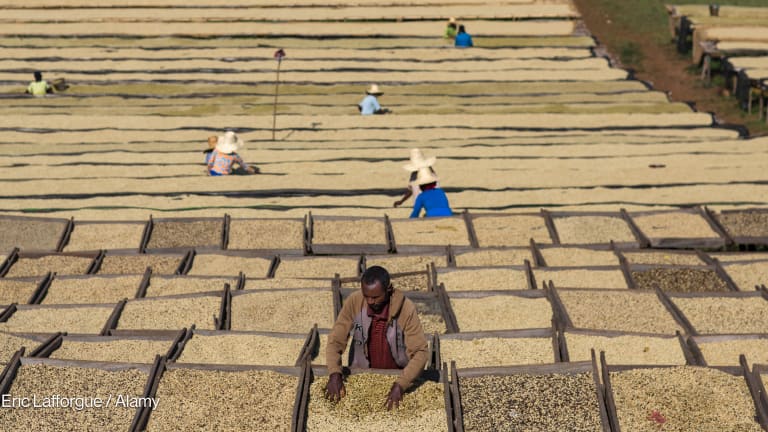
BRUSSELS — Building an equal partnership between the global north and south was a key theme on the opening morning of the European Development Days, the European Union’s flagship development summit — and one high-level speaker challenged the bloc to turn words into action.
“The era of charity is over. What we need is partnership, a true partnership between equals, that can provide and create mutual benefits.”
— Jean-Claude Juncker, European Commission presidentOpening this year’s conference — the 13th edition held in Brussels — European Commission President Jean-Claude Juncker said on Tuesday, “I’ve always believed that European commitment in the world and for the world should not just be charity. The era of charity is over. What we need is partnership, a true partnership between equals, that can provide and create mutual benefits.”
The comments echoed his 2017 EDD speech, when he said, “There cannot be differences made between those who give and those who receive, between Europe and Africa ... This is a partnership of equals.”
Macky Sall, the president of Senegal, followed Juncker’s speech on the main stage, continuing the theme.
“When we say that we want a partnership that is based on equality, even though we don’t all bring the same means to this, in the context of globalization, what that means is that solutions that need to be put forward are global solutions, shared solutions,” Sall said, suggesting that the conference itself could better represent that.
“This is why … these European Development Days should take place once in Brussels and then perhaps once in another capital, in Africa or the Caribbean or the Pacific, to alternate the host city,” he said. “On behalf of Senegal, I’d like to say that we would welcome you any time, if you want to come.”
Mall added that there is a “moral need” to fight inequality — the focus of this year’s EDD — not only “within” nations but also “between” them.
When development conferences cost the Earth
As aid leaders prepare for a summer of jet-setting between conferences, some are asking if the carbon footprint is worth it. Can major aid conferences adapt to a climate-friendly future? Devex Deputy News Editor Jessica Abrahams explores ahead of EDD.
His comments come amid growing criticism of the fact that the bulk of major development conferences are held in the global north, which often limits the participation of the global south due to financial and travel issues.
Some conferences have been criticized for including few representatives from lower-income countries. Last year, the London School of Hygiene and Tropical Medicine said it was considering moving its global health conferences outside the United Kingdom, after a number of researchers from Africa and Asia were denied visas to attend. Similar issues have been reported elsewhere.
Asked about the idea of taking EDD to the global south, Belgium’s Finance and Development Minister Alexander De Croo told Devex, “I can definitely understand the sensitivity to certain symbolism that everyone needs to come to the center of Europe to talk about what is happening in Africa. But it emphasizes, I think, the role that Europe plays in the world today, and I think we don’t emphasize it enough.”
“If at some point we say: ‘maybe let’s make it rotating — one year [here], one year [there] — why not?’ I can understand the fact that it would make sense to do it in other places, in Africa as well,” he continued.
Asked for his view, Tony Elumelu, the Nigerian businessman and philanthropist, said “Anything that brings investors and the continent together is welcome … I like what is happening here. This is fantastic; this is a good platform. There is always room for improvement in any and everything but … [so far] I’ve been very impressed.”









